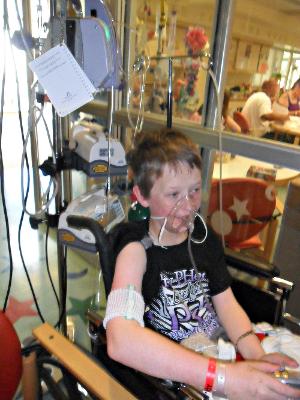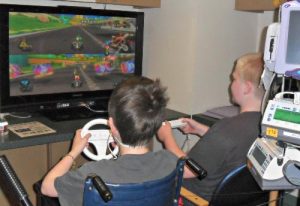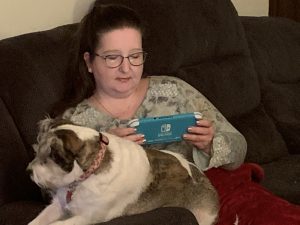A Positive Perspective on Gaming and Your Health
Written by |

I have read articles claiming that playing video games excessively can increase the risk of health problems. Instead, they encourage children to go outside and play, and adults to hit the gym. That sounds like solid advice for healthy individuals, but for those battling serious illnesses, video games can provide a dose of adrenaline that they otherwise would not receive.
My son Cullen was 6 when he started experiencing serious health issues. Two years later, he was diagnosed with pulmonary arterial hypertension. When he was 14, he received a heart and double-lung transplant.
Cullen attended school as often as he could, but normal childhood play was not an option for him. He couldn’t take part in gym class or play physically exerting games at lunch. But he could enjoy video games without feeling breathless.
They were his favorite pastime when at home, and especially when confined to a hospital room for days on end. I was happy that he had this source of entertainment. Gaming was a distraction from pain, constant medical care, and hospital settings.
Besides what he brought from home, the pediatric hospital’s child and family life department had gaming systems with an assortment of games that patients could borrow. It always brought a huge smile to his face as it was wheeled into his room. I would often play with him, and the fact that he almost always kicked my butt added to his fun. And when I did win, he thought it was hilarious.
During a difficult hospital stay, Cullen had both hands in splints to protect multiple IVs. Cullen’s nurse was sympathetic and assumed this would prevent him from playing video games. I can still hear his giggle and response, “Watch me,” as he continued to play without issue. I think he viewed it as a challenge won.
Gaming also gave Cullen incentive to get out of bed on days when it was difficult. Whether he walked or went by wheelchair, the hospital game room was always worth the great effort it took to get there. When possible, it was also a nice, “normal” place to hang out when friends visited.
Cullen’s love of video games inspired incredible understanding, kindness, and generosity from several people over the years. Around Christmas 2010, my husband took Cullen and his brother to work for a big surprise. Co-workers had chipped in and gifted the boys with an Xbox. We have video of that day, and watching it still brings happy tears to my eyes. It’s a joyful memory of two little boys who were dealing with adult-sized worry.
One month prior to transplant, a friend who works at Nintendo invited Cullen and our family for a personal tour. This surprise had my then-teenage sons reacting like little boys at Christmas. It was the last special memory we all have before Cullen’s life-saving surgery.
As a caregiver, I have also found a few games I enjoy and refer to as “my guilty pleasures.” Many years ago, while sitting in a clinic waiting room, Cullen begged me to download a game on my cellphone. It was a farming game called “Hay Day,” where players build their own towns, grow and customize their farms, and complete challenges.
Cullen and I played it together for about a month, and then he moved on to something else. To this day, I still play it. That and “Animal Crossing: New Horizons,” which is the only thing I play on the Nintendo Switch my husband and boys gifted me last year. It is another life simulation game where players create their own islands.
It might sound incredibly childish for a grown woman to play these games, but they hold a special place in my heart. I have played them through good times and bad. They kept me company in waiting rooms and during long hospital admissions. Whenever I felt too distracted with concern to read or watch television, I played these games to relax.
They still have a calming effect on me. Now I play them to either clear my mind or to reflect on things going on in my life. It’s like driving a car. Who hasn’t gotten lost in thought, and next thing you know, you’re at your destination? That’s what it feels like for me when I play these games. I appreciate the monotony of it and enjoy perfecting the imaginary life.
I’m not condoning gaming in place of real life. Exercise, education, work, other responsibilities, spending time with family and friends, and hobbies should take priority. But when something like a rare disease makes it impossible to do these things, I believe there are healing powers for the mind in gaming.
***
Note: Pulmonary Hypertension News is strictly a news and information website about the disease. It does not provide medical advice, diagnosis, or treatment. This content is not intended to be a substitute for professional medical advice, diagnosis, or treatment. Always seek the advice of your physician or other qualified health provider with any questions you may have regarding a medical condition. Never disregard professional medical advice or delay in seeking it because of something you have read on this website. The opinions expressed in this column are not those of Pulmonary Hypertension News or its parent company, Bionews, and are intended to spark discussion about issues pertaining to pulmonary hypertension.








Leave a comment
Fill in the required fields to post. Your email address will not be published.